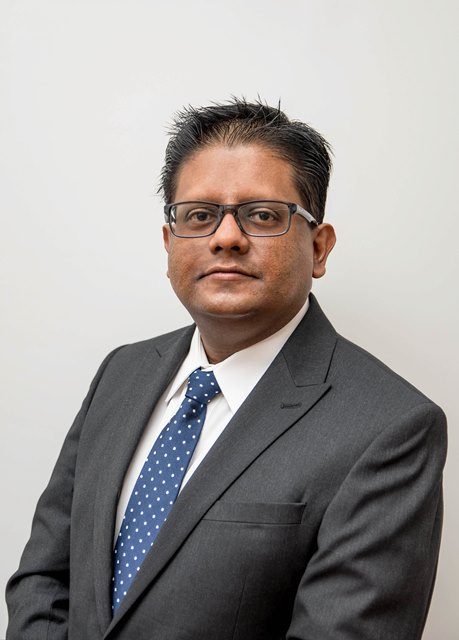Senior Minister in the Office of the President with responsibility for finance, Dr Ashni Singh says that the PPP/C Government believes that effective instruments in the fight against corruption are openness, transparency and accountability.
“We in this Government believe very strongly and we are fully committed to the importance of the fight against corruption in all of its forms and we believe equally …the most effective instruments in the fight against corruption (are) openness, transparency and accountability…,” Singh said.
He was at the time delivering the feature address at the opening of the Guyana Anti-Corruption Framework training workshop hosted by the Ministry of Parliamentary Affairs and Governance.
The aim of the one-day event which was held at the Grand Coastal Hotel was to sensitise and engage stakeholders on the country’s anti-corruption framework.
Equally, Singh said the Government believes an open, transparent and accountable government is an “absolutely” essential prerequisite in democratic governance. “We believe democracy goes hand in hand with openness, transparency and accountability,” he said.
According to Singh, a government that subscribes to the norms of the democracy knows that it is answerable to its electorate, serves its electorate and periodically it must present itself to that electorate and convince them that it is worthy of re-election. “A Government that is committed to democracy cannot therefore disregard the imperatives of openness, transparency and accountability,” Singh added.
“I speak on behalf of the People’s Progressive Party/Civic government headed by President Irfaan Ali and I say that our party both in government and out of government….our party is firmly committed to democratic governance…..Respecting the will of the people when they speak,” he stated.
The anti-corruption framework for Guyana includes several regulatory and oversight anti-corruption bodies with various mandates, all working to implement modern measures for preventing, detecting, punishing and eradicating acts of corruption.
The framework includes constitutional and statutory bodies as well as parliamentary oversight mechanisms.
Among anti-corruption bodies are the Audit Office of Guyana, the Public Procurement Commission (PPC), the Public Accounts Committee (PAC) of Parliament, the Special Organised Crime Unit (SOCU) and the Integrity Commission.
Under Guyana’s Anti-Corruption framework, the National Coordinating Committee (NCC) was established on June 8, 2021. It includes 16 agencies which are all involved in implementing oversight and anti-corruption regulatory responsibilities.
According to Singh, the government’s commitment is to continue to “constantly” review the legal frameworks that are in place to identify means by which they can be strengthened.
“We together, we have a country…seeking to modernize the constitutional and legislative framework and we are hard at work establishing the institutions required by that new constitutional legislative framework… and over time strengthening the institutions that are required to operationalize that framework,” Singh explained.
He noted that government is under no “illusion” that its work is finished in this regard. “We are under no illusion that we have completely assembled the legal framework…That our work is done in this regard,” he said.
Constantly examining
In fact, Singh said “….we are constantly examining these legal frameworks that have now been put in place with a view of identifying lacunae where they exist, areas for potential strengthening and improvement, areas that require elaboration in some cases perhaps by way of subsidiary legislation, areas that require guidelines to operationalize them, other approaches and techniques that can be utilised to enhance effectiveness in operationalizing these frameworks”.
In her address, Minister of Parliamentary Affairs and Governance, Gail Teixeira said the event was the ministry’s commitment to constitutional rule of law, democracy and human rights but also a commitment to strengthening the mechanisms and measures for greater transparency, accountability, inclusion and participation.
“It is important that we recognise that trust and confidence in our institutions and a democratic governance is critical for managing of society in an organized manner…One in which we will have opportunities to…expose issues that are wrong and to have them corrected,” Teixeira said.
She related that as a new ministry, the Ministry of Parliamentary Affairs and Governance needed to find a national mechanism to prevent and reduce corruption and investigate and impose anti-corruption measures. “….We recognise that the prevention of and fight against corruption are fundamental in democracy and the rule of law and that corruption undermines democratic government and citizens’ trust in institutions,” she said.
Teixeira reminded that Guyana ratified the Inter-American Convention Against Corruption (IACAC) on February 15, 2001.
The IACAC, she explained is the first convention dealing with corruption globally. “…Corruption is an important matter but people may not recognise the importance of this convention to us…is that it has helped us to be more sensitized and to be able to build our structures…It is all about implementing development and not about shame and blame,” she said.
Teixeira further stated that the use of technology reduces the opportunity for corruption. “Anti-corruption also deals with whether police are taking bribes…Accessing birth certificates for example, the things that people do in daily life,” she said.
She said the government believed that the country has a “well developed” framework for anti-corruption.
“We believe … we have a well-developed framework for anti-corruption, an anti-corruption framework for our country…..It is a good and robust framework and the focus now will be on developing and building our capacity,” Teixeira said.






